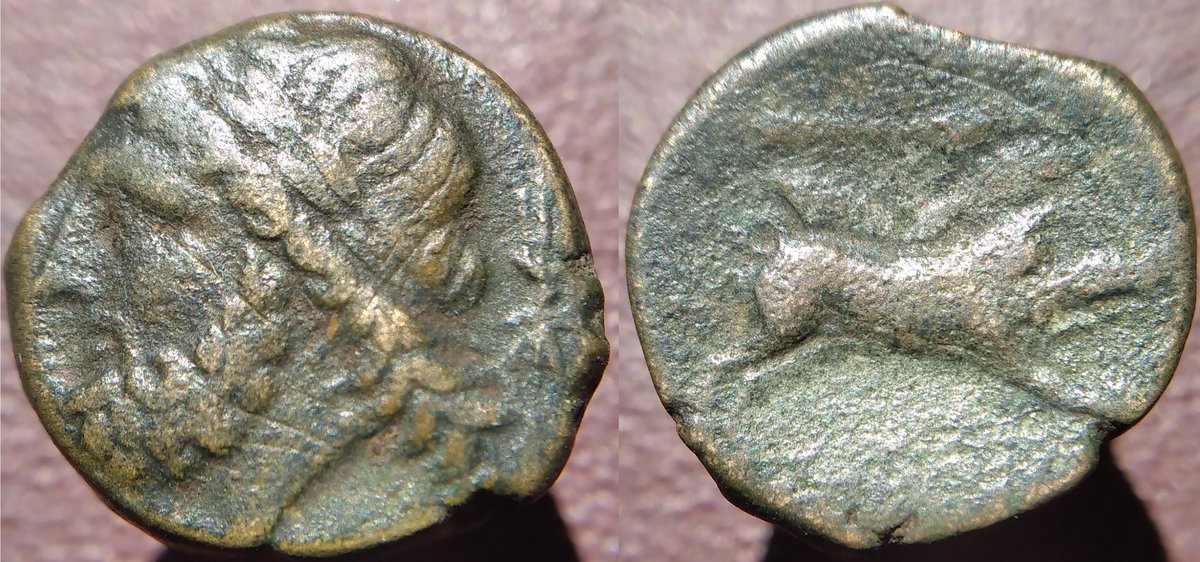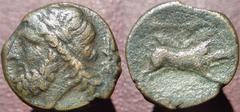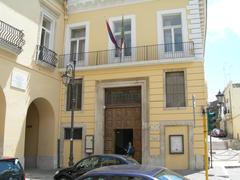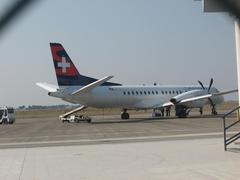
Visiting Arpi Foggia, Italy: Visiting Hours, Tickets, and Historical Sites Guide
Date: 15/06/2025
Introduction to Arpi Foggia: History and Visitor Overview
Nestled in the fertile Tavoliere delle Puglie plain near modern Foggia, Arpi—historically known as Argos Hippium, Argyrippa, or simply Arpi—offers a captivating gateway to ancient Italic civilization and mythology. According to legend, Arpi was founded by the Greek hero Diomedes after the Trojan War, quickly flourishing into one of the largest and most influential cities of pre-Roman Apulia. Renowned for its military strength, agricultural wealth, and strategic alliances, Arpi played a pivotal role in the region’s ancient history.
Archaeological excavations have established a continuous human presence in Arpi from the Neolithic era, making it a key site for understanding early European settlement and state formation. Its well-preserved polygonal walls, extensive necropolises with Daunian stelae, hypogea like the Ipogeo della Medusa, and artifacts now housed in the Museo Civico di Foggia, all underscore its historical and artistic significance. Visitors can explore these remnants within a landscape that has remained largely unchanged for millennia.
This guide provides essential information for visitors, including site access, visiting hours, ticketing policies (with free entry to the archaeological park), and practical tips for safely navigating the terrain. It also highlights Arpi’s cultural legacy through Foggia’s museums, events such as Il Corteo Storico, and local culinary traditions. Whether you are a history enthusiast, archaeology scholar, or a curious traveler, Arpi promises an enriching journey into Italy’s ancient past.
For the most up-to-date information on tours, events, and accommodations, consult resources such as the Foggia Tourist Office, Visit Italy, and curated travel platforms (Wild Trips). Enhance your visit by downloading the Audiala app for interactive maps and exclusive content to help you experience the heritage of Arpi and its surroundings.
Contents
- Discover Arpi: An Ancient City of Myth and History
- Origins and Etymology of Arpi
- Foundation and Mythological Significance
- Urban Development and Archaeological Remains
- Political and Military Role in Antiquity
- Decline and Legacy
- Practical Information for Visiting Arpi
- Location and Access
- Visiting Hours and Tickets
- Accessibility
- What to See
- Guided Tours and Events
- Tips for Visitors
- Nearby Attractions in Foggia and Beyond
- Archaeological Significance of Arpi, Foggia
- Prehistoric and Neolithic Occupation
- The Daunian Civilization and Urban Development
- Greek and Roman Influence
- Key Archaeological Discoveries
- Scientific and Historical Importance
- Visiting Arpi and Foggia Historical Sites: Practical Information
- Discover Arpi and Foggia: Exploring Historical Sites, Cultural Traditions, and Visitor Information
- Summary and Final Recommendations
Discover Arpi: An Ancient City of Myth and History
Arpi, also known as Argos Hippium and Argyrippa, is among ancient Apulia’s most significant pre-Roman archaeological sites. Located just 8 km northeast of modern Foggia, Arpi offers a fascinating glimpse into Italic history, mythology, and culture. This guide covers everything you need to know about visiting Arpi, from its storied past and archaeological highlights to practical travel tips.
Origins and Etymology of Arpi
The name “Arpi” reflects its legendary Greek origins. “Argos” references the homeland of its founder, Diomedes, while “Hippium” highlights the region’s famed horse breeding tradition. Over centuries, the name evolved, possibly deriving from the Greek “arpe” (sickle) or “arpane,” which refers to cattle grazing on the fertile plains—emphasizing the city’s agricultural and mythological importance.
Foundation and Mythological Significance
According to ancient sources, Arpi was founded by Diomedes, the Greek hero of the Trojan War, who settled in Daunia and married Evippe, daughter of King Daunus. Arpi’s mythological prestige is echoed in works like Virgil’s Aeneid, where it is depicted as a mighty stronghold rivaling Rome’s own legendary ancestors.
Urban Development and Archaeological Remains
At its zenith, Arpi was the largest and most populous Italic city in pre-Roman Apulia, fielding an army of over 20,000 soldiers. Strategically positioned on the Tavoliere plain, it flourished both agriculturally and commercially. Strabo described its imposing fortifications, with city walls extending up to 18 kilometers. Key remains include hypogea such as the Ipogeo della Medusa, extensive necropolises from the second millennium BCE, and surface finds near Arpinova. Although much remains unexcavated, the site holds immense potential for future research and tourism.
Political and Military Role in Antiquity
Arpi was a formidable economic and military hub. Initially allied with Rome during the Second Punic War, the city later defected to Hannibal after Rome’s defeat at Cannae in 216 BCE. Hannibal wintered in Arpi in 214 BCE, but the city suffered Roman retribution in 194 BCE, losing its autonomy and much of its defensive infrastructure.
Decline and Legacy
Following Roman conquest, Arpi gradually declined and, by the Middle Ages, had nearly vanished. Survivors contributed to the founding of modern Foggia. Today, the area is valued for its archaeological importance and cultural memory.
Practical Information for Visiting Arpi
Location and Access
The Arpi site is located north of Foggia, near Arpinova. The most convenient access is by car from Foggia, which itself is well connected by rail and road to major Italian cities.
Visiting Hours and Tickets
- Hours: Open daily from 9:00 AM to 6:00 PM (seasonal variations may apply).
- Tickets: Entry is free; guided tours may require advance booking and a fee. Confirm up-to-date details with local authorities or the Foggia Tourist Office.
Accessibility
The terrain includes uneven, unpaved paths. While accessibility initiatives are ongoing, visitors with mobility challenges should contact the visitor center in Foggia for tailored guidance.
What to See
- City Walls: Remnants of ancient fortifications.
- Necropolises and Hypogea: Including the Ipogeo della Medusa and Ipogeo dei Cavalieri.
- Tavoliere Plain: Panoramic agricultural landscapes.
Guided Tours and Events
Local archaeological associations offer guided tours; cultural events and festivals are held seasonally. Check with Wild Trips or the Foggia Tourist Office for schedules.
Visitor Tips
- Wear sturdy footwear.
- Bring water and sun protection.
- Respect preservation guidelines and do not disturb unexcavated areas.
Nearby Attractions in Foggia and Beyond
- Foggia Historical Sites: Cathedral, museums, and bustling markets.
- Parco Nazionale del Gargano: Forests, medieval villages, and beaches.
- Siponto Archaeological Park: Roman ruins and a Romanesque cathedral.
Archaeological Significance of Arpi, Foggia
Prehistoric and Neolithic Occupation
Arpi’s human history spans back to the Neolithic. The nearby Passo di Corvo Archaeological Park is Europe’s largest Neolithic site (200 hectares), with evidence of early agricultural communities (Islands.com).
The Daunian Civilization and Urban Development
Arpi became a major Daunian center, known for distinctive pottery, stelae, and burial customs. Rich tombs with imported Greek ceramics highlight its affluence and regional connections (Museo Civico di Foggia; The Crazy Tourist).
Greek and Roman Influence
Arpi’s location promoted interaction with Greek settlers. By the 4th century BCE, Greek culture influenced its urban design and material life. The city’s coinage, inscribed “Argos Hippium,” reflects these connections (The Crazy Tourist).
During the Roman era, Arpi initially allied with Rome but suffered after siding with Hannibal. Successive destruction and rebuilding are evident in the archaeological record.
Key Archaeological Discoveries
- Necropolises: Hundreds of tombs, Daunian stelae, and grave goods (see Museo Civico di Foggia).
- Urban Structures: City walls, residential compounds, fortifications.
- Artifacts: Neolithic tools, Daunian ceramics, imported Greek wares.
Scientific and Historical Importance
Arpi’s remains are vital for understanding urbanization, cultural exchange, and state formation in pre-Roman Italy. Modern research uses aerial photography and GIS mapping to reconstruct the ancient landscape (Visit Italy).
Visiting Arpi and Foggia Historical Sites: Practical Information
Passo di Corvo Archaeological Park
- Hours: Tuesday–Sunday, 9:00 AM–6:00 PM; closed Mondays.
- Tickets: €8 adults, €5 reduced, under-12 free.
- Accessibility: Wheelchair-accessible paths; some reconstructed areas may have limited access.
- Transport: 15 minutes from Foggia by bus, taxi, or car; parking available.
Museo Civico di Foggia
- Hours: Tuesday–Sunday, 10:00 AM–5:00 PM; closed Mondays/holidays.
- Tickets: €6; concessions and combined tickets available.
- Accessibility: Fully accessible.
Other Attractions
- Cathedral of Foggia
- Church of Santa Maria Iconavetere
- Tavoliere plain nature reserves
Visuals and Interactive Elements
- High-quality images and interactive maps
- Virtual tours via QR codes on site
FAQ
Q: What are the hours for Passo di Corvo and the Museo Civico?
A: Passo di Corvo: Tue–Sun, 9:00–18:00; Museo Civico: Tue–Sun, 10:00–17:00.
Q: How do I buy tickets?
A: At the entrance or online via official websites.
Q: Is the site accessible?
A: Most areas are wheelchair-friendly.
Arpi Archaeological Site: Visiting Hours, Tickets & Foggia Historical Sites Guide
Location and Access
- Arpi: 8 km northwest of Foggia, accessible via SP109. Car recommended (Wild Trips).
- Public Transport: Foggia is served by train/bus; taxis or private transfers to Arpi.
- Cycling: Flat, scenic route possible in cooler months.
Visiting Hours and Tickets
- Hours: No formal opening/closing; visit during daylight.
- Entry: Free, no ticket required. Confirm details with the Foggia Tourist Office.
What to Expect
- City Walls & Necropolis: Explore remains and panoramic views.
- No Onsite Facilities: Bring essentials; nearest amenities are in Foggia.
Best Time to Visit
- Spring/Autumn: Mild temperatures, fewer crowds.
- Summer: Hot; visit early or late.
- Winter: Open year-round but may be muddy.
Safety and Visitor Tips
- Wear sturdy shoes and sun protection.
- Avoid visiting alone or after dark.
Guided Tours
- No regular tours; private arrangements possible via local operators.
- Visit the Museo Civico di Foggia for context and exhibits.
Accommodation
- Stay in Foggia: hotels, guesthouses, and agriturismo. Use Booking.com for reservations.
Local Cuisine
- Traditional dishes: orecchiette, Cardoncelli mushrooms, olive oil (Italy Time).
Accessibility
- The site is not wheelchair accessible; consult local guides for alternatives.
Etiquette
- Do not disturb ruins or remove artifacts.
- Respect private land.
Discover Arpi and Foggia: Cultural Traditions and Visitor Information
Historical Sites and Museums
- Foggia Archaeological Museum: Tue–Sun, 9:00–18:00; €5 adults, €3 reduced.
- Church of San Giovanni di Dio: Daily, 8:00–12:00 & 16:00–19:00; free entry.
- Sanctuary of Saint Mary Our Lady of Grace: Daily, 7:00–19:00; free entry.
Festivals and Events
- Il Corteo Storico: Summer historical parade—free, open to all.
- Foggia Folk Fest: September festival of music and dance.
Gastronomy
- Markets: Piazza Cavour’s Saturday market for fresh produce.
- Specialties: Orecchiette, mozzarella, burrata, panzerotto.
- Recommended Dining: Osteria del Cacciatore.
Academic and Artistic Life
- The University of Foggia’s Department of Humanities enriches the district with exhibitions and cultural programs.
Practical Information
- Many sites are accessible, but confirm specifics before visiting.
- Modest attire for religious sites.
- Workshops and guided tours available through local offices.
Nearby Attractions
- Villa Comunale Karol Wojtyła: Public park.
- Historic Center of Foggia: Cafés, shops, artisan studios.
Summary and Final Recommendations
Arpi, just outside Foggia, offers a unique fusion of myth, history, and archaeology. From its legendary founding by Diomedes to its role as a powerful Daunian and Roman city, Arpi’s remains are invaluable for understanding Apulia’s ancient civilizations. The open-air archaeological park, Museo Civico di Foggia, and nearby Passo di Corvo provide a rich, immersive experience for visitors.
Prepare for uneven terrain, but enjoy free entry and the convenience of Foggia’s amenities. Engage with local guides, respect the archaeological heritage, and explore the region’s vibrant culinary and cultural life. Sustainable tourism and ongoing research help preserve Arpi’s legacy—your visit contributes to its future.
For comprehensive planning, use official tourism channels and the Audiala app for maps and guides. Whether you seek ancient urbanism, mythology, or authentic Italian culture, Arpi and Foggia promise an unforgettable journey.


